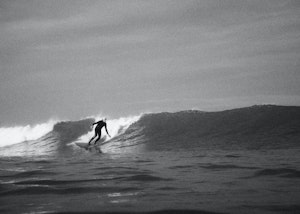
Photo by National Today
A Native American Tribe In New York Wants To Get A Headstart On Cannabis Sales
The Cayuga Nation in New York wants to regulate and sell cannabis within their own tribal government, letting them get a headstart on New York's recreational cannabis space.
A Native American tribe in New York is taking advantage of the state’s recent recreational cannabis laws and their right to regulate cannabis products and sales on tribal lands. The Cayuga Nation in New York is getting ready to launch an adult-use cannabis cultivation enterprise, reports High Times.
The news comes just a few months shy of New York entering its adult-use market, as recreational cannabis businesses still haven’t received the proper licensing to operate. New York state legalized the Marijuana Regulation and Taxation Act (MRTA) a year ago, making possession and use of the plant legal for those of age.
It’s been almost a year later, and state regulators still haven’t made any announcements or statements regarding New York’s licensing process, but High Times reports that retailers aren’t expected to open for business until spring 2023.
That’s where Native Americans come in; as members of sovereign nations, they have the right and power to create their own cannabis laws and regulations within tribal governments, allowing them to sell marijuana on their land.

Photo by Getty Images
A spokesperson for the state Office of Cannabis Management, Freeman Klopott, told Politico that the state’s tribal nations should very well be able to create their own laws and regulations around marijuana production and sales.
“Native Americans living on federally recognized, sovereign tribal land are legally allowed to operate dispensaries that are not regulated under the New York State cannabis law,” Klopott said to Politico.
With the Cayuga Nation people launching adult-use recreational sales, this might allow for more Native American brands and ventures, like the Cayuga Nation-founding hemp and CBD brand Arrowhead.
According to Syracuse.com, Klopott also mentions that New York state can “enter into agreements with tribes through tribal compacts to integrate them into the state program if all parties can agree to terms,” but there hasn’t been any news on whether this is something both parties would agree on just yet.
Lee Redeye, a Tribal lawyer, spoke with High Times about why state regulators have taken a while to roll out cannabis legalization and regulate the statewide industry. He says this delay in action gave tribal governments a headstart on legal cannabis sales. “There’s a considerable amount of money to be made in the industry, especially with New York lagging behind,” Redeye told High Times.
Herb Recommended Products:
READ MORE










